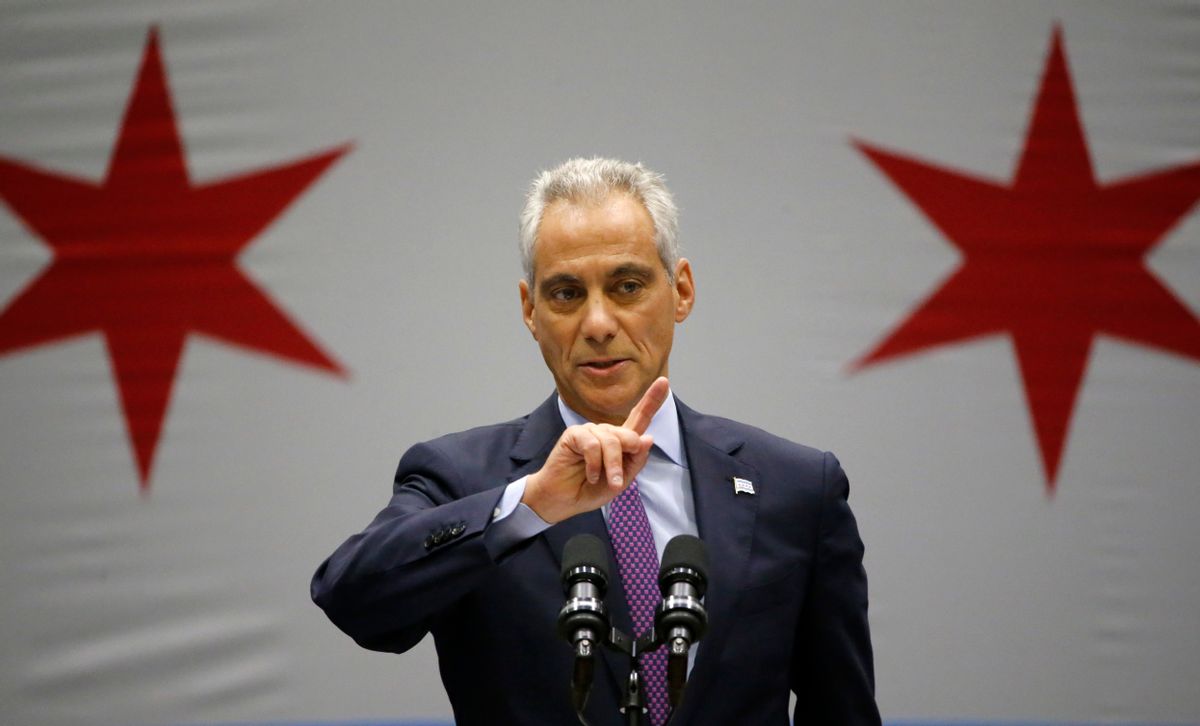Chicago Mayor Rahm Emanuel is defending his decision to sue the U.S. Justice Department for trying to use the power of the purse to compel the city’s local police to assist federal officials in immigration operations.
If local police officers are compelled to demand legal status of people they stop, the mayor and others say it would discourage undocumented migrants from reporting crimes or coming forward as witnesses, disrupting efforts to fight crime and bring criminals to justice — especially in immigrant communities.
“We want residents to see the police department as partners in making their neighborhood safe,” the mayor said Monday morning, in an interview with CNN’s Poppy Harlow. “If you have one part of your city . . . that fear[s] the police department, it actually undermines the very philosophy [of community policing] and also the public safety that we’re seeking.”
Last week, U.S. Attorney General Jeff Sessions announced his department would withhold federal law enforcement grants to local jurisdictions that don’t help Immigration and Customs Enforcement (ICE) officers root out immigrants who don’t have legal status to be in the country.
“By protecting criminals from immigration enforcement, cities and states with so-called 'sanctuary' policies make all of us less safe,” Sessions said in a statement announcing the new policy, referring to so-called sanctuary cities where police officers do not ask the legal status of the people they stop for questioning, or who come forward to report crimes. Currently there are about 100 jurisdictions, including New York and Los Angeles, and dozens of counties in Iowa and Colorado that have “sanctuary” status.
In an effort to sway public opinion in favor of President Donald Trump’s immigration policies, Sessions cited an example of an “illegal alien” in Portland, Oregon, a sanctuary city, who had been deported 20 times and had allegedly sexually assaulted an elderly woman.
Earlier this year, by order of the president, ICE set up a website encouraging the public to report crimes committed by immigrants, despite strong evidence that immigrants — legal or not — are significantly less likely to commit crimes.
Questions remain about how much power the federal executive branch has to compel states, counties and cities to comply with federal law enforcement operations if they choose not to.
In April, a federal judge blocked nationwide enforcement of the president’s executive order to withhold all federal funds to sanctuary cities on constitutional grounds. The Supreme Court has ruled in the past that the federal government cannot compel states to comply with federal law; if the federal government wants to go after undocumented migrants against the will of local jurisdictions, it must use federal resources to do so.
But as the Chicago lawsuit highlights, the federal government is trying a different tack by withholding federal crime-fighting money.
Meanwhile, ICE officers have been increasing their enforcement operations in sanctuary cities since Trump took office, which has led to a legal challenge in New York accusing ICE of harassing non-citizen defendants and their families while they attend court hearings.



Shares